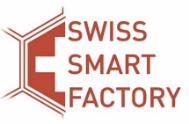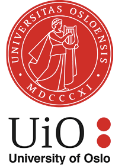Pilots
RE4DY pilots address both machine tool builder and product manufacturing resiliency perspectives, as well as joint optimization of smart product and production at both engineering & operational phases. The use cases address also the ones with highest EU priority for development of common manufacturing data space, i.e., Logistics of the Future, Megafactory & E-battery design, Circular Machining and Distributed Green Zero-X Manufacturing. These processes will be applicable to many sectors, proving high growth and replication potential.
Therefore, the value ecosystems address 4 advanced manufacturing use cases.
Click on each use case title to know more!
Connected resilient logistics design & planning
AS/RS are Systems designed for Automated Storage and Retrieval of parts and items in manufacturing, comprehending a system of storage racks, conveyors, handling robots and Automated Guided Vehicles (AGVs).
The complex network of the VW T-Rock logistics ecosystem is constantly changing. Therefore, the logistics specialist study on a daily-basis the best solutions to optimize the processes as much as possible.
Furthermore, the logistics specialists sustain the added pressure of having to seamlessly deliver parts to a virtually non-stop production assembly which on itself, could also suffer occasional deviations due to client demands.
Currently, Volkswagen AutoEuropa uses manual sequencing for AS/RS, managing a huge amount of manufacturing data. The entire process of unloading, placing the windows in the correct order, and transporting the racks to the Point of Fit (POF), are performed manually. The AutoEuropa Volkswagen is motivated to implement an automatic AS/RS Sequencing System for car glass assembly.
The adequate collection of the big data generated in the factory by all the systems, its appropriate serialization, management and utilization using artificial intelligence and simulation techniques, will enable to create real-time navigation plan to get an adequate Sequence Cells that will decrease the waiting time.
The Ambition of this pilot was to achieve Real-time self-learning virtual factory for autonomous logistics and augmented logistic operator decision support.
Collaborative ecosystem resilient product/production system engineering for electric battery
FILL as key machine tool provider delivers in the order of 100 production systems per year to around 50 customers worldwide. AVL is a worldwide leading drive and battery engineering company focusing on e-mobility and battery innovation for e-mobility in cars. Both companies exploit data-driven and modelbased digital twin engineering over the whole life-cycle of e-batteries.
AVL covers the design, engineering and usage phase of batteries along with their subsystem ecosystem of providers. FILL engineers flexible and highly customized production systems for e-battery packages.
Together they wish to address distributed engineering data spaces for collaborative and integrated engineering and life-cycle assessment of resilient e-batteries product and process of batteries. The goal in RE4DY is the data-driven digital value network to decrease timely and cost-effectively e-battery package component complexity and concurrently accelerate product design workflows and highly customized flexible serial production of battery packages for OEM and TIER1.
The RE4DY engineering industrial data fabric will be capable to build data-driven active resiliency strategies over multi-vendor platforms and ecosystems of partners and suppliers that improve industrial ability to adapt and respond to disruptions and unplanned events through “resilient-by-design” product and process. Digital thread data management methods to build resilient manufacturing networks for new e-battery technologies demands integration of engineering data space with engineering data fabric.
The Ambition of this pilot was to achieve Integrated, agile co-engineering workflows for resilient e-battery & flexible agile zero-megafactory production.
FILL as key machine tool provider delivers in the order of 100 production systems per year to around 50 customers worldwide. AVL is a worldwide leading drive and battery engineering company focusing on e-mobility and battery innovation for e-mobility in cars. Both companies exploit data-driven and modelbased digital twin engineering over the whole life-cycle of e-batteries.
AVL covers the design, engineering and usage phase of batteries along with their subsystem ecosystem of providers. FILL engineers flexible and highly customized production systems for e-battery packages.
Together they wish to address distributed engineering data spaces for collaborative and integrated engineering and life-cycle assessment of resilient e-batteries product and process of batteries. The goal in RE4DY is the data-driven digital value network to decrease timely and cost-effectively e-battery package component complexity and concurrently accelerate product design workflows and highly customized flexible serial production of battery packages for OEM and TIER1.
The RE4DY engineering industrial data fabric will be capable to build data-driven active resiliency strategies over multi-vendor platforms and ecosystems of partners and suppliers that improve industrial ability to adapt and respond to disruptions and unplanned events through “resilient-by-design” product and process. Digital thread data management methods to build resilient manufacturing networks for new e-battery technologies demands integration of engineering data space with engineering data fabric.
The Ambition of this pilot was to achieve Integrated, agile co-engineering workflows for resilient e-battery & flexible agile zero-megafactory production.
Collaborative ecosystem integrated machine tool performance self-optimisation
GF Machining Solutions (+GF+) is Swiss leading manufacturer of Machine tools for different technologies and commercializes above 3000 machine devices and automation systems every year to worldwide customers.
FRAISA as high precision milling tool manufacturer delivers over 1 Mio tools per year to worldwide customers. 90% of machines systems and tools are exported to the automotive, aerospace, and industrial machine industry, to medical device manufacturers and microsystems industry. Both companies yield for connected solutions that seamlessly integrate into a European industry 4.0 cloud infrastructure and thus enable new business applications in the field of tool machines.
The Key motivation is to exploit shared data spaces to optimize the management of waste associated with machining operations regarding Energy, Components, Materials, Tools, and thus to significantly reduce costs and CO2-footprint on the shopfloors. In this context, both companies plan to adopt the new RE4DY toolkit and resiliency framework to create an open, transparent machine tool value network data ecosystem in which data and services can be made available, collected, and shared in a trustworthy environment.
By combining and sharing machine and tool parameters with the AI cognitive capabilities of a multi-platform ecosystem, the machining operation can be optimized holistically, waste and rejects are reduced and reverse logistics of machine tool parts and tools is facilitated. Machine parts and tools are tracked along their entire lifespan and synchronize with their Circular executable Cognitive Digital Twin (CDT) to always guarantee the optimal operation point. When critical parts (spindle, tools) reach the end of life, they will be automatically returned to +GF+ and FRAISA, where the optimal maintenance/reprocessing strategy can be determined based on the collected life time data of Circular Digital Twin.
The Ambition of this pilot was to achieve Resilient and sustainable manufacturing through Interoperable Circular Digital Twins for machining processes in a multi-platform ecosystem, in order to allow a zero waste, real time, sustainable manufacturing.
Cooperative multi-plant turbine production with predictive quality chains
The EU Green Deal is posing extraordinary challenges to the aeronautical industry and the targets for cutting the emissions of the next generation of jet engines are pushing towards new architectures and new technical solutions. Avio Aero is on the forefront of that effort with the other relevant European players and HE Cluster 4 and 5 are providing resources to innovate and develop sustainable solutions for EU industries and for the mobility sector.
New design solutions will imply additional complexity of the production processes thus potentially increasing quality issues and waste. Manufacturing engineers will have to deal with new materials to be treated with special processes, new geometries to be machined, new critical characteristics to be inspected, new quality requirements and in general with manufacturing processes increasingly distributed among different plants or value chain actors. Also, the production volumes are likely to increase for two main reasons:
- Next generation engines will be installed on regional jets, that are manufactured in thousands of units.
- Air traffic had been consistently increasing pre-COVID and regional traffic is set to come back to pre-COVID levels by the end of 2022, before starting to rise again. This will make quality issues and waste generation even more relevant, putting additional pressure on the extended value chain.
In other terms, the development of a sustainable jet engine has to be coupled with sustainable and resilient distributed manufacturing processes that can convert the design intent into real products without negatively impacting the green deal objectives.
The Ambition of this pilot was to achieve Near real-time predictive quality on distributed multi-plant aeronautical manufacturing processes.

















